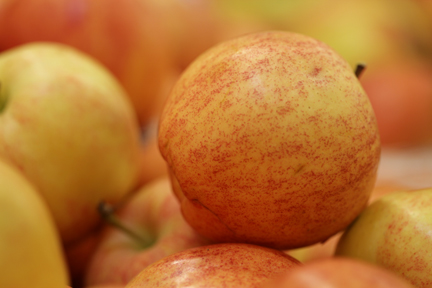 Eating fresh produce is the best way to obtain the nutrients that support optimum health, but the pesticides used on many crops remain a major health concern. By choosing organic foods, you can reap the health benefits of fruits and vegetables without exposing yourself and your family to potentially harmful chemicals. Pesticides present real health risks, particularly to children and those with health concerns. The toxicity most commonly associated with pesticides in animal studies include disruptions in the normal functioning of the nervous and endocrine system, and increased risks of cancer.
Eating fresh produce is the best way to obtain the nutrients that support optimum health, but the pesticides used on many crops remain a major health concern. By choosing organic foods, you can reap the health benefits of fruits and vegetables without exposing yourself and your family to potentially harmful chemicals. Pesticides present real health risks, particularly to children and those with health concerns. The toxicity most commonly associated with pesticides in animal studies include disruptions in the normal functioning of the nervous and endocrine system, and increased risks of cancer.
- Apples
- Strawberries
- Grapes
- Celery
- Peaches
- Spinach
- Sweet bell peppers
- Nectarines (imported)
- Cucumbers
- Cherry tomatoes
- Snap peas (imported)
- Potatoes
Plus these which may contain organophosphate insecticides, which EWG characterizes as “highly toxic” and of special concern:
- Hot peppers
- Blueberries (domestic)
Why should you care about pesticides? The EWG points out that there is a growing consensus in the scientific community that small doses of pesticides and other chemicals can have adverse effects on health, especially during vulnerable periods such as fetal development and childhood. Here’s a video in which I address the importance of avoiding pesticides.
Also keep in mind that maintaining your family’s health is not the only reason to choose organic food. Pesticide and herbicide use contaminates groundwater, ruins soil structures and promotes erosion, and may be a contributor to “colony collapse disorder,” the sudden and mysterious die-off of pollinating honeybees that threatens the American food supply. Buying or growing organic food is good for the health of the planet.
